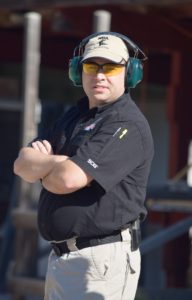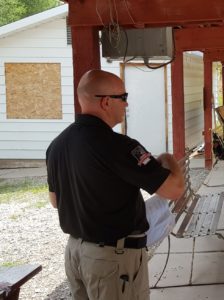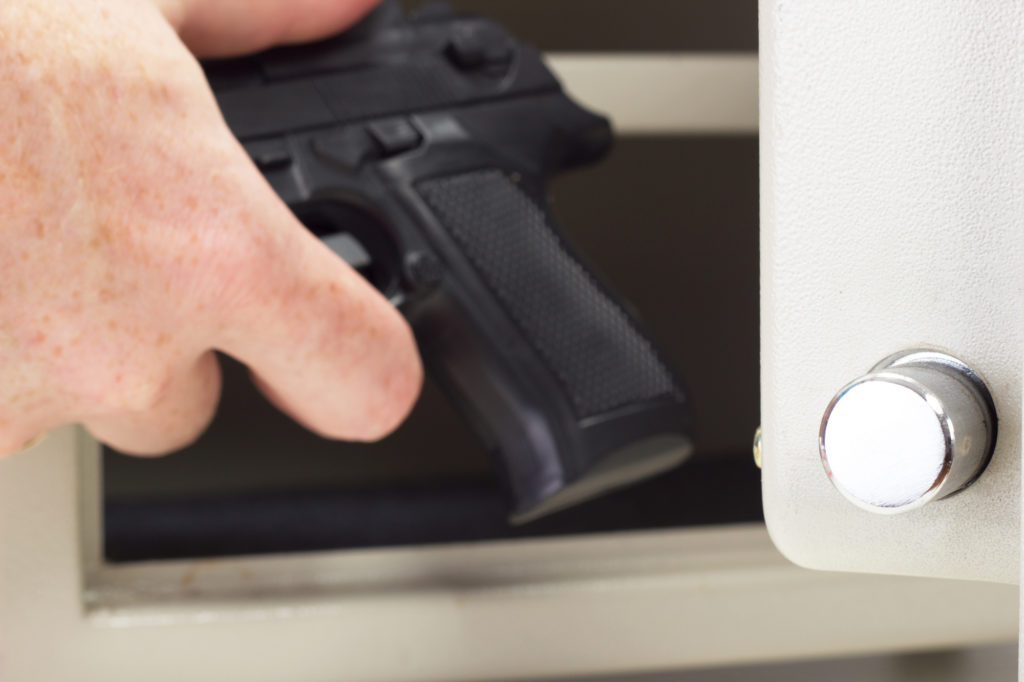When a person begins their journey toward firearm ownership and eventually toward everyday concealed carry of a gun for personal defense, they will naturally look for guidance. Any rational person will recognize that carrying a firearm is a significant responsibility and will want to take steps to ensure that they are able to do so safely. Surely, one of the greatest barriers to people feeling confident enough to make this serious decision is a difficulty finding an instructor who they trust.
Gun advice is readily found at the sporting good store or at a gun store and range. Usually these retail employees do have some very useful experience and information. Other common sources of advice are friends who are firearm enthusiasts who possess plenty of experience but nevertheless are not dedicated instructors. “The guy at the gun store”, the “friend of a friend”, or “the guy who used to be a cop” are all good guys, I’m sure, but maybe they are not necessarily really good instructors. Perhaps this is one reason why there is so often such bad information that persists around the shooting community.
A good instructor is, first and foremost, a good instructor. That sounds terribly redundant, but it really is true. A concerned citizen wishing to learn more about firearms and carrying concealed needs someone who actually knows how to teach. Describing a good teacher is difficult but surely includes characteristics such as professionalism, good communication skills, is organized, is prepared to teach from a strong curriculum, and is willing to be personally invested in the whole growth of the student. In other words, a good teacher cares about stimulating positive change in the student and not merely just checking off topics in a lesson plan.
It may seem counter intuitive that I say the most important quality for a good shooting instructor is teaching ability, not shooting ability. But the reason is actually quite simple. Shooting is merely the application of certain fundamentals, and really good shooters just have really good application of those same fundamentals – nothing more. There is no magic voo-doo to becoming an expert shooter. There is no secret body of knowledge that is only entrusted to a worthy few. Obviously, a good shooting instructor needs to know those fundamentals and presumably has spent signficant time honing them. A shooting instructor who has personally walked the path that he is leading others to follow will have much more to offer, but even if he possesses only moderate skills, he should still be able to effectively teach them to others.
On the other hand it is much easier to describe a bad instructor – and trust me, there are many. Warning signs to look for include:
- Poor Professionalism. The individual changes or cancels classes frequently, has poor communication leading up to class, or just generally does not dress, act, or speak in a way that is appropriate. Frequently the unprofessional behavior just generally becomes obnoxious bluster. It could be tempting to settle for the loudest guy, most bombastic and strongly opinionated, but in any other areas of our lives we generally avoid such individuals. Choosing a firearm instructor should be no different.
- Lapses in Safe Practices. This may be hard to judge before registering for a class for the first time, but if there was ever a past incident of a negligent discharge, or reports of weak safety practices, or if there is even a hint of a weak attitude toward safety, this should be a warning sign.
I make it a point of taking at least 1-2 advanced classes per year from a variety of instructors, and I can say from personal experience that some instructors are NOT to be trusted when it comes to safety. You can easily search the internet for “instructor negligent discharge” or “shooting close call” and find tons of examples where an instructor allowed an unsafe situation to develop into a hazard.
- An “I know it all” attitude. One crucial characteristic of a good instructor is being a good student. There is always more to learn. If an instructor presents him/herself as being the ultimate expert in all things that go bang, you can be assured that this attitude is blinding that person to new opportunities for growth. My advice, steer clear.
In the same vein, ask your potential instructor “what shooting practices have you changed your mind about over the last several years”. In other words, what is one practice that this person used to teach that they now recognize is not a best practice going forward? If they cannot name one, then this instructor maybe is still doggedly teaching the same principles and practices that dominated the industry during Vietnam. The world of shooting has progressed, and your potential instructor should be keeping abreast of the latest innovations.
There could be many more factors to consider when choosing your firearm instructor. I’d like to think that each one has their heart in the right place, but in every circumstance, if you were to compare two or more instructors, one will always be a better choice than the others. This short list of things to look for will help you make the smarter choice.



